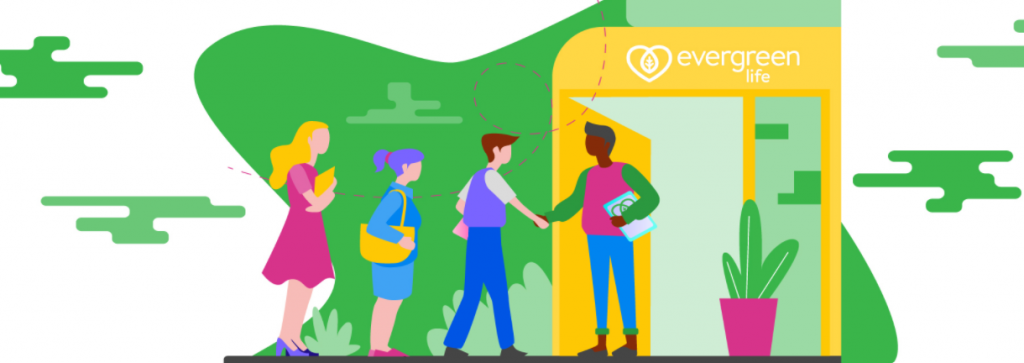Evergreen Life is proud to announce a partnership with Cievert, the latest addition to the Evergreen family. We’ll now be strategically working together to better deliver our services and improve clinical pathways and patient outcomes, by putting the individual at the heart of healthcare.
Working across primary and secondary care, our partnership with Cievert has enabled the businesses to integrate products and leverage Evergreen Life’s expertise in ‘people powered health’ across healthcare.
Vaccess is the latest product that has seen the benefits of the partnership with clinical system integration for the primary and secondary care vaccine solution becoming available just in time for flu season.
More about Vaccess – the primary and secondary care vaccination platform
Vaccess is a bespoke vaccination management system, built to be both patient facing and clinician centric. The platform automates vaccine eligibility checks for influenza as well as COVID-19 boosters, and allows patients to book, cancel, or reschedule their own vaccination appointment at a time and location that suits them and clinic staff. Our fully customisable solution maintains patient anonymity and data security, whilst also helping to streamline the end-to-end vaccination process and therefore significantly reduce demand on GP phone lines during the busy winter period.
Find out more about how Vaccess can help your organisation here
About the strategic acquisition
Established in 2014 in Manchester by former clinical pharmacist, Stephen Critchlow, our aim at Evergreen Life is to put people in control of their health and wellbeing to get the care they want. The Evergreen Life app provides a quick and easy way for people to manage their patient services online – such as booking a doctor’s appointment at the tap of a button and ordering a repeat prescription with the option of free home delivery. The app also offers Wellness Check functionality to help people better understand their health, whereby people can take clinically-reviewed questionnaires to improve various aspects of their wellbeing such as sleep, fitness, diet and happiness.
Established in 2011 by former NHS radiographer, Chris Kennelly, Cievert is a digital health company specialising in software that improves the efficiency of complex clinical pathways in NHS hospitals across the UK. Their first software application improved the quality of cancer pathways which resulted in reduced waiting times for treatments, as well as reducing admin for staff. With offices in Newcastle, Manchester and London, Cievert is perfectly placed to service the entirety of the UK. Cievert’s software can now be found in NHS cancer centres across the country.
Quotes from key persons
“We believe that people should be empowered to get the wellbeing and health that they want and be supported to get the care that they need. Cievert has a track record of using technology to help the NHS to improve access to care; managing referrals for cancer and other specialist treatments, managing thousands of vaccination bookings for sites across the UK and helping patients to be followed up remotely in the community with patient reported outcomes and assessments. By working together in this way, we can join up more parts of the health and care system around the person as part of our mission to deliver People Powered Health.”
“Refreshingly, Chris and the team at Cievert have always focussed on patients as people and we have a shared ethos around connecting health and wellbeing data so that it both benefits the individual, the NHS, and the wider community,” said Mark Hindle, COO of Evergreen Life.
“We realised that Cievert and Evergreen Life shared a range of research interests, and we could deliver greater services to our customers, and ultimately patients, by being a single organisation,” said Chris Kennelly, CEO of Cievert.
“Our mission is to make routine healthcare a thing of the past, and by integrating with Evergreen technology we will be able to share clinical data between the patient, secondary care and primary care, meaning we can start to support interesting activity like supported self-care, improve clinical risk stratification, remote monitoring and population health.”
